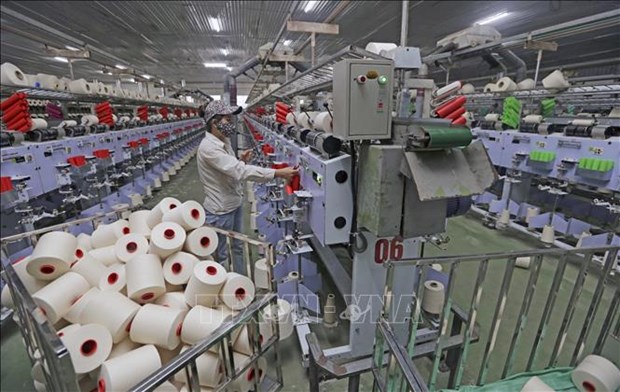Trade remedies should be utilised more and in a more effective way to ensure fair competition and protect domestic production in the context of Vietnam’s deeper integration into the global economy through joining more free trade agreements (FTAs), according to experts.

Trade remedies should be utilised more and in a more effective way to ensure fair competition and protect domestic production in the context of Viet Nam’s deeper integration into the global economy through more free trade agreements (FTAs), according to experts.
Trade remedies are measures allowed by the World Trade Organisation (WTO) to prevent unfair competition such as dumping and subsidies for imported goods. These also prevent a sudden surge of imported goods which has the potential to cause serious damage to domestic manufacturing industries.
The demand for the use of trade remedy tools will also be higher along with the development of global trade. Trade remedies have been recognised by many countries as a necessary tool to stabilise domestic production and protect employment for domestic labourers.
Viet Nam has so far joined 15 Free Trade Agreements (FTA) and is negotiating two other FTAs. Among the 14 FTAs that have come into force, the Comprehensive and Progressive Agreement for Trans-Pacific Partnership (CPTPP), the Viet Nam-European Union Free Trade Agreement (EVFTA) and the UK-Viet Nam Free Trade Agreement (UKVFTA) are three new generation FTAs with comprehensive commitments in many economic and trade fields.
The signing of these agreements helps expand the market, attract investment, and bring competitive advantages to Viet Nam's exports, but also puts domestic production at risk of fraud of origin, illegal transfer of goods and evasion of trade remedies tax.
To deal with the issues, the Government of Viet Nam and the Ministry of Industry and Trade have developed many projects and programmes to improve the capacity of Vietnamese businesses relating to using trade remedies.
Specifically, the Prime Minister approved two projects on "Strengthening state management on combating evasion of trade remedies and origin fraud", and "Building and effectively operating an early warning system on trade remedy" with the aim of preventing and responding to foreign trade remedy lawsuits, towards sustainable exports.
A project on enhancing trade remedy capacity in the context of Viet Nam’s participation in new generation FTAs was also ratified. It creates a comprehensive framework to enhance the effectiveness of trade remedies and improve knowledge and capacity of enterprises on trade remedies.
The overall goal of the project is to perfect the legal system on trade remedies to ensure their consistency with international commitments, new generation FTAs, and the interests of the economy in the process of international integration as well as to effectively use trade remedies to protect domestic production and benefits of consumers.
The project will focus on reviewing legal documents in the field of trade remedies in the 2022-2025 period, thereby proposing amending the Law on Foreign Trade Management or developing a Law on Trade Remedies.
Currently, the Ministry of Industry and Trade is actively co-ordinating with relevant ministries and agencies to develop a plan of action to carry out the project, ensuring the full implementation of the set goals, and protecting legitimate rights and interests of Vietnamese manufacturing industries and enterprises in the process of participating in FTAs. — VNS
- Tags
- trade remedy tools
- FTAs





